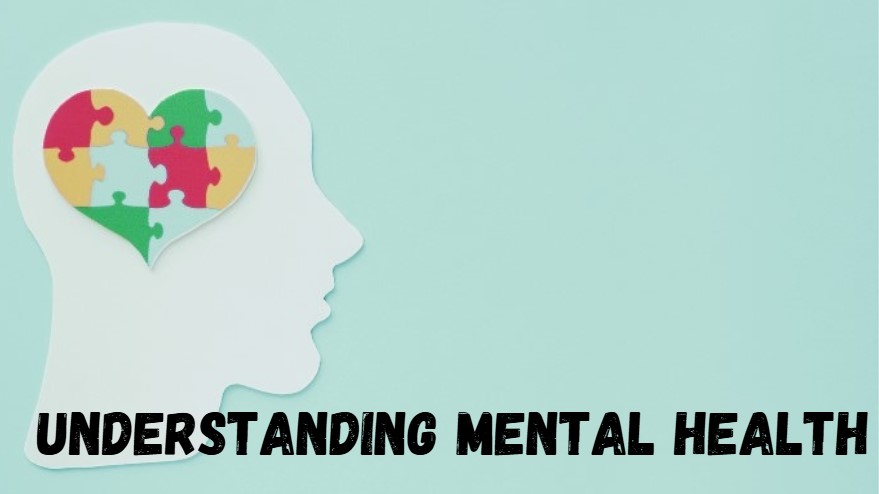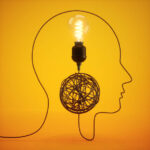What is Mental Health?
Mental health refers to the well-being of a person’s mind, encompassing emotional, psychological, and social health. It influences how people think, feel, and act, affecting their ability to handle stress, build relationships, and make decisions. Mental health is more than the absence of mental disorders; it’s a positive state that allows individuals to live fulfilling lives, maintain resilience, and adapt to adversity. Factors such as genetics, life experiences, and environmental influences play significant roles in shaping one’s mental health.
Related Terms:
well-being, resilience, mental state, stress, genetics, emotional health, psychological health, life experiences, adaptability, adversity
Signs of Poor Mental Health
Identifying signs of poor mental health is essential for seeking help early and improving overall well-being. Some common signs include persistent sadness, irritability, difficulty in concentrating, changes in eating habits, and withdrawing from social interactions. Poor mental health often manifests physically, with symptoms such as fatigue, headaches, or digestive issues.
Early detection of these signs can lead to timely intervention, preventing mental health conditions from worsening. For some, changes in behavior may be subtle, while for others, they may appear more evident. Recognizing these patterns in yourself or loved ones is a step toward mental wellness.
Related Terms:
persistent sadness, irritability, concentration, eating habits, social interactions, fatigue, headaches, digestive issues, intervention, mental wellness, behavior changes
Common Mental Health Disorders
There are various types of mental health disorders, each with unique signs and symptoms. Some of the most common include:
Depression
Depression is characterized by intense sadness, lack of energy, and a disinterest in daily activities. People with depression often feel hopeless, experience changes in sleep patterns, and may withdraw from social life. It can affect a person’s work, relationships, and physical health, causing persistent low energy and concentration difficulties. Treatments typically include therapy and medication.
Anxiety Disorders
Anxiety disorders are marked by overwhelming fear, worry, or stress that interferes with daily life. People with anxiety may experience physical symptoms like a racing heart, sweating, and restlessness. Types of anxiety disorders include generalized anxiety disorder, panic disorder, and social anxiety disorder. Treatment often involves therapy, lifestyle changes, and medication.
Bipolar Disorder
Bipolar disorder causes mood swings ranging from extreme highs (mania) to lows (depression). During manic episodes, individuals may feel overly excited, take impulsive risks, and have excessive energy. In depressive episodes, they may feel hopeless and unable to find joy. Managing bipolar disorder often requires a combination of therapy and mood-stabilizing medications.
Post-Traumatic Stress Disorder (PTSD)
PTSD occurs after experiencing or witnessing a traumatic event, leading to flashbacks, nightmares, and severe anxiety. Those with PTSD may avoid situations that remind them of the trauma and feel emotionally numb. Treatment often includes therapy focused on trauma recovery.
Related Terms:
depression, hopeless, sleep patterns, medication, anxiety, racing heart, restlessness, panic disorder, mood swings, mania, trauma, flashbacks, numb
Causes of Mental Health Issues
Understanding the causes of mental health issues is complex, as they often arise from a mix of biological, psychological, and environmental factors.
Biological Factors
Genetics can make individuals more vulnerable to mental health issues. For example, a family history of mental disorders like depression or anxiety may increase the likelihood of similar issues. Brain chemistry and hormonal imbalances can also contribute to mental health disorders, as changes in brain chemicals like serotonin and dopamine affect mood and emotions.
Psychological Factors
Individual personality traits and coping skills influence mental health. People with low self-esteem or a tendency to see life events negatively may be more prone to mental health issues. Traumatic experiences, such as abuse, neglect, or loss of a loved one, are significant contributors to conditions like PTSD, anxiety, and depression.
Environmental Factors
Environmental factors, such as stressful life events, poverty, or social isolation, also play a role. A supportive social network and stable environment often contribute positively to mental well-being, while hostile or unstable environments can worsen mental health issues.
Related Terms:
genetics, family history, brain chemistry, serotonin, personality traits, coping skills, traumatic experiences, social isolation, supportive network, poverty, hormonal imbalances
Symptoms of Mental Health Issues
Mental health symptoms vary widely across disorders but can often be grouped into three main categories: emotional, behavioral, and physical symptoms.
Emotional Symptoms
Emotional symptoms may include feelings of sadness, anger, guilt, or anxiety. People may feel worthless, overwhelmed, or unable to control their emotions. Emotional symptoms affect relationships, work performance, and personal fulfillment.
Behavioral Symptoms
Behavioral symptoms involve changes in a person’s habits or actions, such as withdrawing from loved ones, neglecting responsibilities, or engaging in risky behaviors. These symptoms can disrupt daily routines and social interactions.
Physical Symptoms
Physical symptoms of mental health issues include fatigue, headaches, stomachaches, and sleep disturbances. People with mental health concerns often experience physical discomfort without an identifiable physical cause, which can exacerbate their stress and mental health struggles.
Related Terms:
sadness, guilt, anger, withdrawal, risky behaviors, physical discomfort, relationships, work performance, sleep disturbances, stomachaches, fulfillment
Solutions for Mental Health Issues
Addressing mental health issues often requires a holistic approach that combines professional treatment, lifestyle changes, and social support. Solutions vary based on the severity and type of mental health issue.
Professional Treatment
Professional treatment is crucial for managing mental health issues effectively. This may include therapy, medication, or a combination of both. Therapy options like cognitive behavioral therapy (CBT) and psychotherapy help individuals understand and manage their thoughts, emotions, and behaviors. Medication may be prescribed to balance brain chemicals or alleviate symptoms, especially for conditions like depression, anxiety, and bipolar disorder.
Lifestyle Changes
Positive lifestyle changes can significantly impact mental health. Regular physical exercise releases endorphins, which can improve mood and reduce stress. A balanced diet, adequate sleep, and limiting alcohol or caffeine intake can also enhance mental well-being. Practicing mindfulness and relaxation techniques, such as meditation, can help people manage stress and promote calmness.
Social Support
Building a supportive network of friends, family, or support groups can make a substantial difference in coping with mental health issues. Social support provides a sense of belonging and reduces feelings of isolation. Engaging in community activities or finding a therapist who facilitates group sessions can help individuals feel understood and connected.
Related Terms:
professional treatment, therapy, medication, cognitive behavioral therapy, exercise, balanced diet, mindfulness, relaxation, social support, belonging, isolation, endorphins, community
Stigma Around Mental Health
The stigma surrounding mental health is a significant barrier that prevents many people from seeking help. Stigma stems from a lack of understanding and awareness, often leading to discrimination against individuals with mental health issues. This negative perception can cause feelings of shame, isolation, and reluctance to seek professional support.
Reducing stigma requires education and open conversations about mental health. Encouraging people to share their experiences and listen to others’ stories can foster empathy and acceptance. Mental health campaigns, support groups, and mental health days at workplaces can also help create environments where people feel safe discussing their mental health challenges without fear of judgment.
Related Terms:
stigma, discrimination, shame, isolation, professional support, empathy, mental health campaigns, acceptance, open conversations, mental health days
Early Intervention and Prevention
Early intervention and prevention are vital in managing mental health issues before they become severe. Recognizing early signs and seeking help promptly can prevent mental health conditions from worsening and improve treatment outcomes. Schools, workplaces, and communities play a role in promoting mental health awareness, offering resources, and providing support for individuals at risk.
Preventive measures include stress management programs, teaching resilience skills, and providing accessible mental health resources. Public health initiatives focused on mental health awareness can encourage people to take proactive steps in maintaining their mental well-being.
Related Terms:
early intervention, prevention, mental health awareness, resilience, stress management, public health initiatives, proactive steps, accessible resources
FAQs
What is mental health?
Mental health refers to a person’s emotional, psychological, and social well-being. It affects how individuals think, feel, act, and respond to stress, relationships, and life’s challenges.
What are some signs of poor mental health?
Signs include persistent sadness, irritability, difficulty concentrating, changes in eating habits, and withdrawal from social interactions. Physical symptoms like fatigue and headaches may also appear.
How can mental health issues be treated?
Treatment often involves therapy, medication, lifestyle changes, and social support. Therapy options include cognitive behavioral therapy and psychotherapy, which help individuals manage thoughts, emotions, and behaviors.
Why does stigma prevent people from seeking help?
Stigma, often due to misunderstandings, leads to shame and fear of judgment, discouraging individuals from reaching out for mental health support.
What role does early intervention play in mental health?
Early intervention can prevent mental health issues from worsening, leading to better treatment outcomes and overall well-being.





